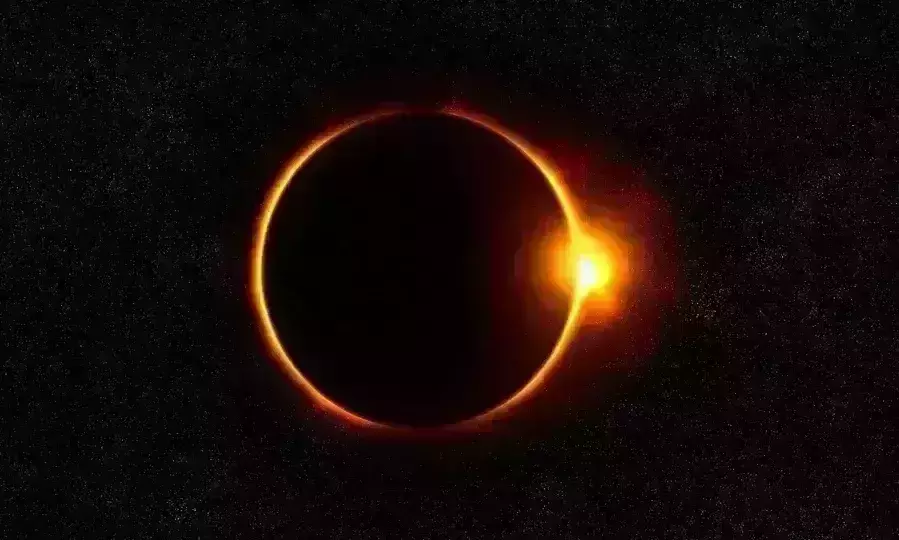
1st solar eclipse of 2022 to happen on May 1, 12.15 am IST
text_fieldsNew Delhi: The first solar eclipse of 2022 could be seen in certain parts of the world on April 30, Saturday, Asian News International reported.
The phenomenon in which the moon passes between the Sun and the Earth, blocking sunlight partially or entirely in some areas, and this could be seen from the Earth but in certain parts of the globe.
The event is set to start at 12:15 am on May 1, 2022, as per Indian Standard Time (IST). People outside India could witness this at 02:45 pm EDT, and it lasts till 04:41 pm EDT. The entire event will end at 04:07 am IST on May 1, 2022.
The event would be visible in locations such as South America, Chile, Uruguay, southwestern Bolivia, Peru, and specific areas in southwest Brazil and Argentina. NASA also informed that it would be visible over the South Pacific and parts of Antarctica.
However, it would not be visible in India, but it could be watched online streaming of NASA Orthographic Maps, Google Interactive Maps, and NASA Animations, Asian News International reports.
The National Aeronautics and Space Administration (NASA) has also predicted the occurrence of an astronomical phenomenon known as the Black Moon, in which Black Moon blocks sunlight for some time during the day.






















